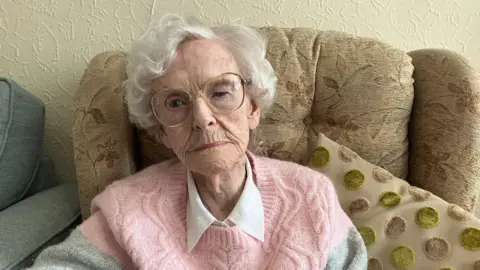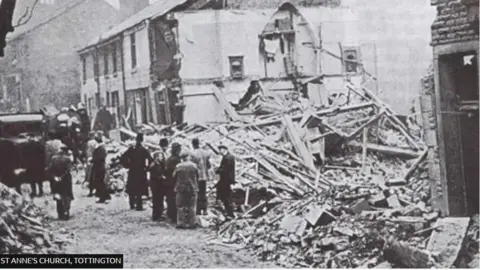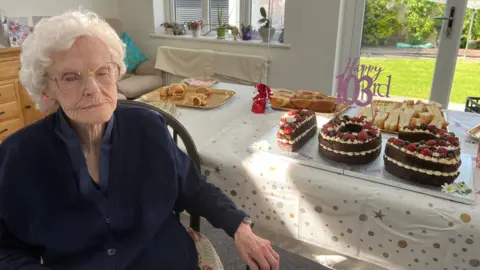Woman who survived WW2 'doodlebug' attack turns 103
 BBC
BBCA woman who survived a notorious flying bomb attack during World War Two has celebrated her 103rd birthday.
Forty-two people died when the Nazis launched dozens of the V1 "Doodlebug" rockets at the Manchester area on Christmas Eve 1944, with bombs also landing in neighbouring Oldham and Bury.
Mary-Jane Conway, who lost both of her parents in the losses in Bury, said: "I just remember the whoosh and a flash. We didn't have time to get into our cellar and I was unconscious for quite a while."
Their house, on Chapel Street in Tottington, was destroyed and four other people died in the blitz.
Mary-Jane was born on 4 June 1922 and attended Holy Mount Convent School in Bury, where she was taught by nuns.

Her mother Molly and father Nicholas were 48 and 50 when they died.
"I had no really bad injuries but I knew something bad had happened to my mum and dad. I didn't go to their funerals because I wasn't 'with it' enough," she said.

After the war, Mary-Jane became a nurse, caring for premature babies.
She retired at 60 and was then a volunteer at Springhill Hospice in Rochdale.
She moved into supported accommodation at Farraday House in Radcliffe, in August 2018 after her eyesight began to deteriorate.
A birthday celebration took place at the care home, where she told BBC Radio Manchester the secret to living such a long life was "never getting married".

Frank Pleszak, a local historian has researched the bombing.
"The rockets were launched from a Heinkel twin engine bomber off the Yorkshire coast, near the Humber Estuary," he said.
"They had a pulse-jet engine which had a very specific sound.
"After a certain distance, the engine would cut out and the bomb would plummet to the ground. People knew the noise they made and gave them the nickname of doodlebug".
The worst of the devastation was on Abbey Hills Road in Oldham, where 27 people died.
Listen to the best of BBC Radio Merseyside on Sounds and follow BBC Merseyside on Facebook, X, and Instagram. You can also send story ideas via Whatsapp to 0808 100 2230.
